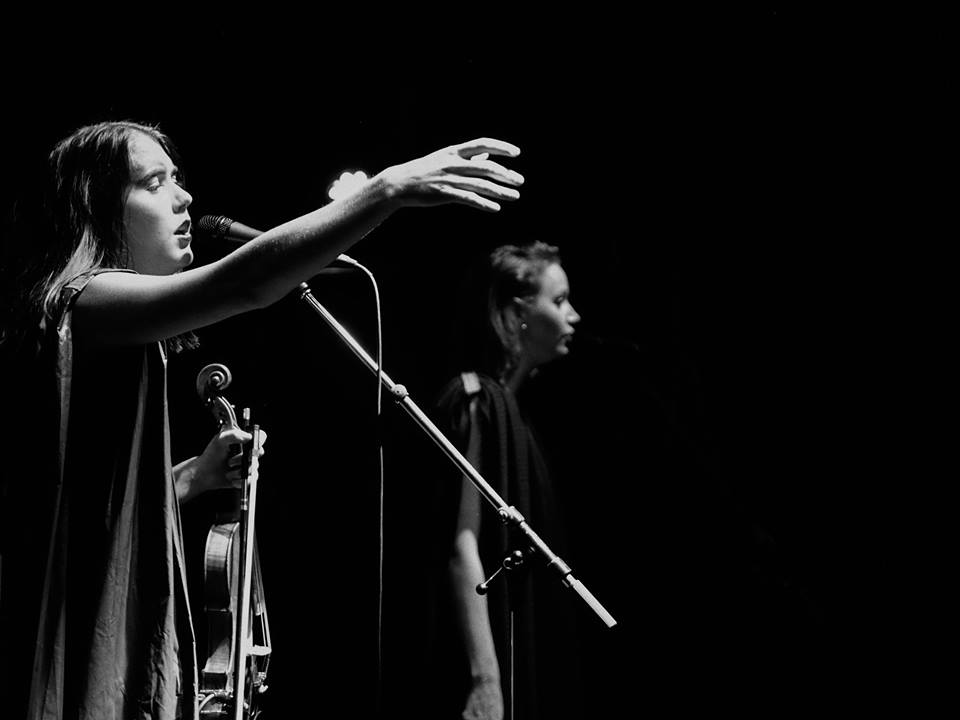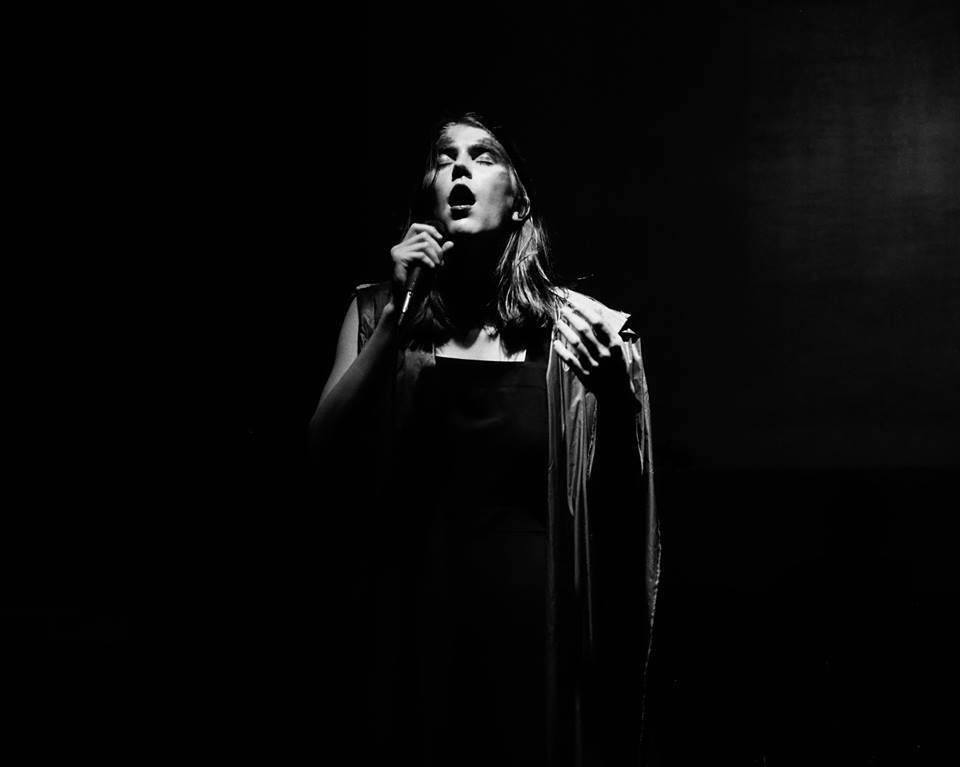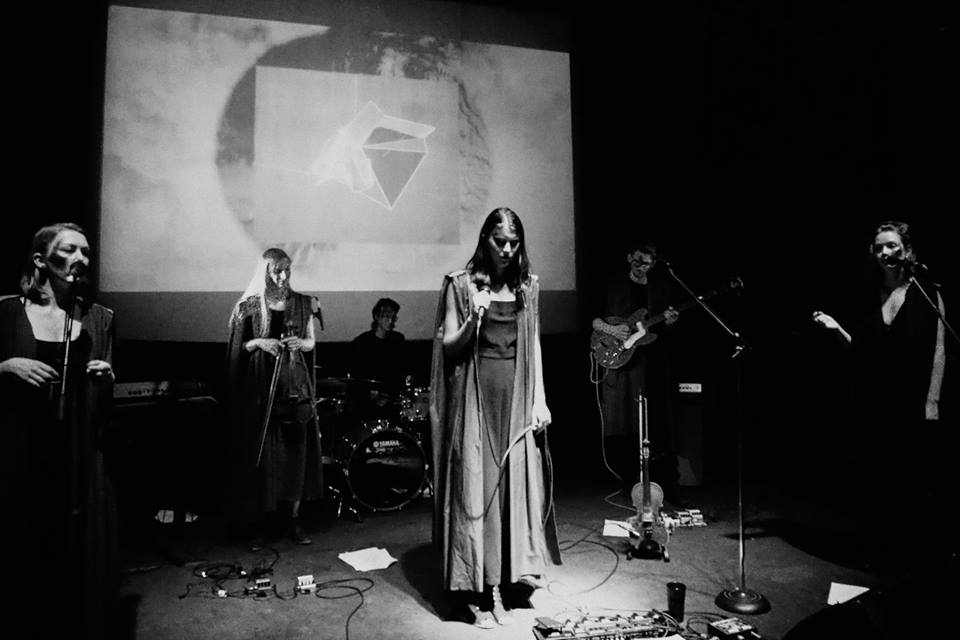More than one music scene descended on Wallgrin’s Bird/Alien release show. Much of the crowd had been anticipating the album for more than two years, since Wallgrin began releasing videos for tracks like “Kiss Me in a Casket” and “Ae’aea.” Between then and now, the woman behind the ‘grin, Tegan Wahlgren, has been widely active with her live solo set and as a backing musician for acts including Sam Tudor and Holy Hum. She was also responsible for one of my favourite musical moments of recent years, namely the searing violin solos that help turn the album version of Peach Pit’s “Private Presley” from a damned good rock tune into what has got to be a cathartic masterpiece. So Wallgrin’s got connections.
Those connections became a whale of a backing band for the Bird/Alien release. Flanking Wallgrin downstage, vocalists Sydney Thorne and Katerina Gimon kept up with vocal divebomb after vocal divebomb; upstage, keyboardist Harley Small, bassist Jasper Wrinch and drummer Josh Griffin kept the grooves pumping — and by “the grooves” I mean the bass, the sub-bass, the bass drum and everything in between. All wore robes. All had a blue painted splotch on one cheek. Their body languages were muted, sombre and directed at each other, a mosaic of nods and glances.

Why does Wallgrin affect pagan ritualism in her garb and lyrics? On the face of it, the schtick is ridiculous — with a shoestring prop budget and surrounded by electronic trappings, it’s like she’s praying to the god that bestowed Spinal Tap a three-foot Stonehenge. But even on a budget, the get-up is enough to start the imagination working. There’s a definite influence of Björk in the sleek photogenic brand-craft developed with photographer Mackenzie Walker. There’s a burning desire to sell the audience not only a music, but a fantasy world. What I like most about Wallgrin is her understanding that people don’t come to pop shows because they want their eardrums caressed. They come because they want an excuse for hysteria.
So it is with regret that I report the relative lack of dancing at the Wallgrin release. Maybe I should blame the opening act — one enigmatic Ian William Craig, spooling an ancient tape machine and singing the audience to hypnosis with soaring, diatonic vocables that lived somewhere between the emotive end of plainchant and the intimate end of bel canto — but I think Wallgrin could have delivered more of the goods. Because although each of Wallgrin’s tracks had a big buildup, only one, the closer “Ae’aea,” delivered a drop. This is a problem, Wallgrin! We want to see you rock stadiums! We want to go WILD! In order to do that, we require drops, not as the exception — as the rule!

Let’s be clear about one thing: Wallgrin is a pop star. She has a gigantic vocal range. She inflects every note at a precise volume, from a precise direction. She writes songs that offer senses of movement and image that transcend one or two listens. She rightfully has the backing of great musicians. In love songs, protest songs and a whole lot besides, she screams, growls, screeches away at the electronics and even arranges counterpoint. As far as I’m concerned, what she needs to do now is let us dance.


